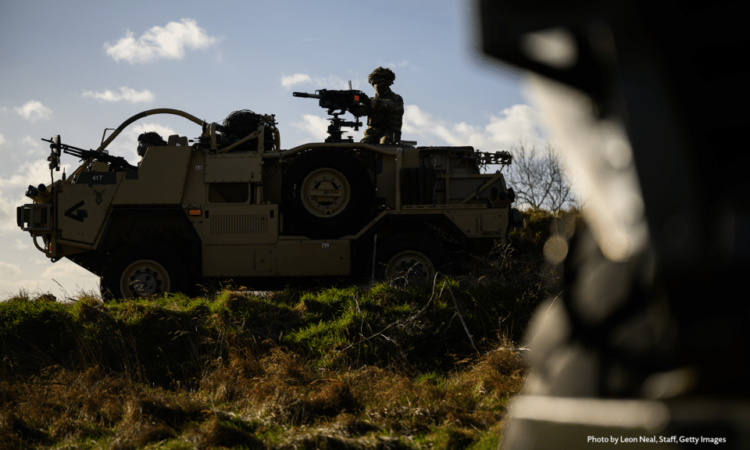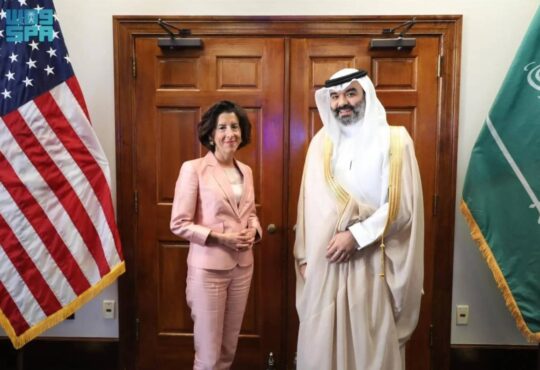
Andrew Dorman explores the state of the UK military in light of recent reports and comments on Britain’s war readiness, highlighting that the difficulties are not just with equipment but also a lack of strategy and difficulties with recruitment.
The nearness of war – and Britain’s preparedness for any such war(s) – has been in the spotlight over the last few weeks. The recent publication by the House of Commons Defence Committee of its report on ‘Ready for War?’ follows earlier speeches by Grant Shapps, the Secretary of State for Defence, and General Sir Patrick Sanders, the soon to be retiring head of the British Army on the theme.
In his ‘Axis of Evil’ speech made at Lancaster House, Shapps pointed to the threat posed by more authoritarian states – expressly naming Russia, China, Iran and North Korea. Shapps then claimed that the government was investing in the armed forces with a promise to increase defence spending to 2.5% of GDP once the economic situation would allow.
Sanders and the Defence Committee clearly disagreed with the Shapps’ assumption that rearmament can be delayed until the economy is in a better shape. When Sanders became head of the army in 2022, he gave it the mission of preparing for war with Russia. Nine days after the Shapps speech, Sanders argued that the general public needed to be prepared for a war with Russia. The press focused on the question of conscription and largely missed the wider issue of the state of the armed forces.
Sanders is not an isolated voice. In their evidence to the Defence Committee, the Service Chiefs were quite frank about the state of Britain’s armed forces and their inability to sustain a war for any period of time.
As a number of commentators and officials have noted, this war narrative has echoes of the late 1930s and Britain’s scramble to rearm when confronted by the threat posed by Hitler, Mussolini and Imperial Japan at a time when the economy was trying to recover from a worldwide recession, the costs of World War 1 and significant social deprivation. Yet, a reluctant National Government embarked on a major rearmament programme that ultimately enabled Britain to hold out, even after a succession of defeats in Europe, and await the industrial power of the United States to tip the balance in the allies’ favour. Similarly, a mere five years after the Second World War and with an economy still struggling to recover, the UK engaged in a major rearmament programme following North Korea’s invasion of the south in 1950. One immediate consequence of this was the introduction of prescription charges.
If this ‘Axis of Evil’ narrative is to be believed, then Sanders is right to question the disconnect in government policy. But the United Kingdom already has one of the largest defence budgets in the world and there is no doubt that successive governments have failed to invest wisely in the nation’s defence capabilities. The Conservatives emphasis on competition and market forces rather than on resilience has resulted a series of defence programme horror stories and a general lack of industrial investment.
At the same time the top-heaviness of Britain’s armed forces, first identified more than a decade ago, has not been addressed. the much heralded 2011 Levene reforms have failed to deliver a less bureaucratic, leaner and more capable Ministry of Defence. Instead, they have encouraged the Services to act in their own interests rather than take a wider defence perspective and thus undermined many of the changes he had implemented two decades earlier. This has not been helped by a strategy vacuum first identified some fifteen years ago. Boris Johnson’s 2021 Integrated Review was full of gimmicks and bluster, such as the creation of a Space Force, but lacked any real substance or prioritization. The subsequent 2023 Integrated Review Refresh was little better and has left the armed forces with significant capabilities gaps and an inability to sustain a commitment of any size for very long. Instead, the Ministry is now preparing for a further defence review in the early part of the next government with the hope that someone will make the big decisions.
Meanwhile, weaknesses in Britain’s armed forces are being exposed as the Defence Committee report highlights. For example, repeated delays in ordering new ships and the frequent decision to provide space for a weapon system but then not fit the weapon is being exposed in the Red Sea, with HMS Duncan lacking the ability to strike shore targets. In response, the Chancellor, Jeremy Hunt, has apparently already agreed to upgrade the armament of the Type 45 destroyers like HMS Duncan.
Similarly, the Eurofighter Typhoon squadron that has been launching periodic strikes on Yemen is also tasked with support to British air assets in the Black Sea and counter-terrorist operations over Syria and Iraq.
Both examples highlight the relative paucity of Britain’s armed forces with an air force fighter force only consisting of around 100 Typhoons and 30 F-35B Lightnings. The second operational Lightning squadron has only just been formed with the third not due until the early 2030s at which point the United Kingdom will finally be able to fully equip one of its two aircraft carriers. The state of Britain’s air capabilities was brutally exposed in an earlier Defence Committee report. The state of the British Army is no better.
But the problem is not just one of equipment. The Services are all struggling to recruit and retain personnel across a number of areas. As a result, many of the army’s infantry battalions are short of personnel whilst the Royal Navy and Royal Fleet Auxiliary have been unable to crew some of their existing ships.
Efforts towards improving the diversity of the armed forces have had limited results whilst the more traditional areas for recruitment have tended to dry up. At the same time, many are leaving the services fed up with decrepit housing and poor equipment.
Other nations have been far bolder in their response to Russia’s illegal invasion of the Ukraine. The death of Ian Lavender, the last member of the cast of the classic sitcom Dad’s Army, is a reminder of a time when the United Kingdom found itself in dire circumstances. The challenges now are more complex – Mr Mainwaring, it might be the time to panic.
By Andrew Dorman, Professor of International Security, King’s College London.





